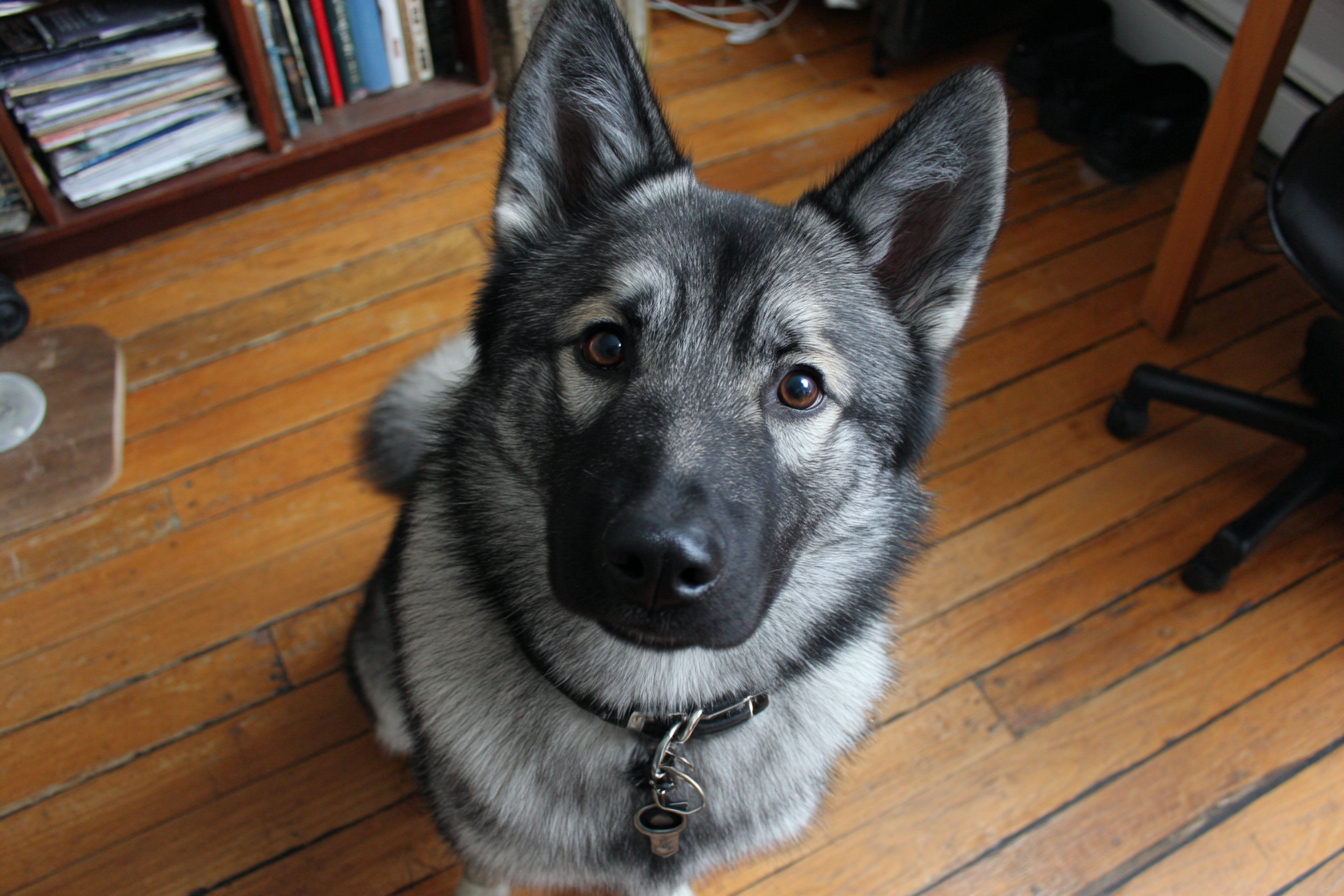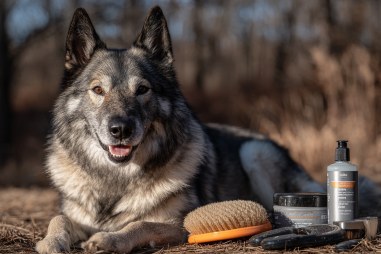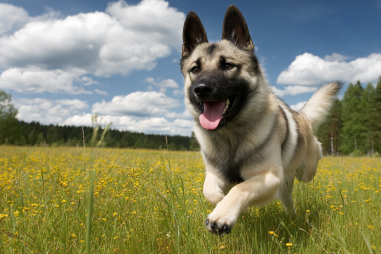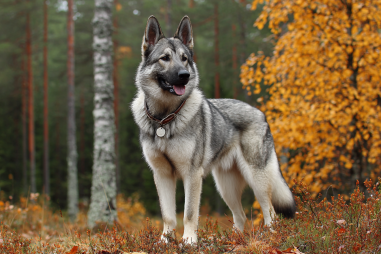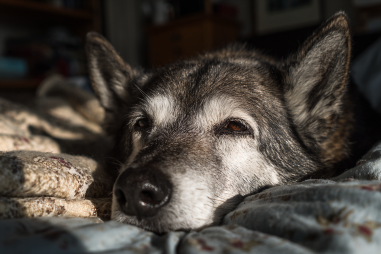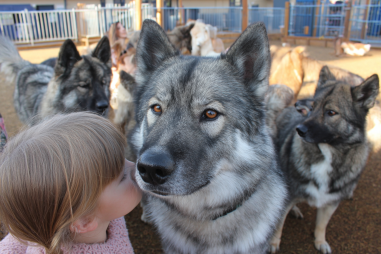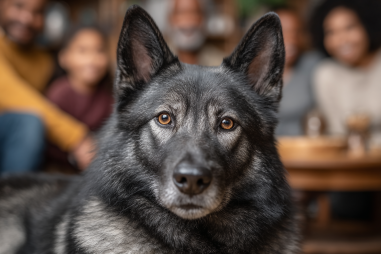Norwegian Elkhounds are spirited, intelligent dogs known for their loyalty and hunting prowess. While they make wonderful companions, like any breed, they can face certain behavioral challenges that may affect both their well-being and their relationship with their owners. Understanding these common behavioral problems and how to address them is key to raising a happy, balanced Norwegian Elkhound.
Typical Behavioral Challenges in the Norwegian Elkhound
Norwegian Elkhounds are bred to be independent hunters, which can sometimes translate into behaviors that pet owners find difficult. Their strong instincts, combined with their keen intelligence, can sometimes lead to stubbornness or willful disobedience. Additionally, this breed is naturally protective, which means they may occasionally exhibit territorial or guarding behaviors.
Common behavioral challenges in Norwegian Elkhounds include:
- Excessive barking, often as a form of alert or communication
- Separation anxiety, due to their strong attachment to family members
- Stubbornness or reluctance to obey commands
- Aggression or defensiveness, particularly if not properly socialized
- Digging and destructive behaviors when bored or under-stimulated
Signs of Anxiety, Stubbornness, and Aggression
It’s important for owners to recognize early signs of behavioral problems, so they can intervene before these issues become more serious. Norwegian Elkhounds may exhibit anxiety through behaviors such as:
- Restlessness or pacing
- Excessive whining or barking
- Destructive chewing or digging
- Attempts to escape or follow family members obsessively
Stubbornness can appear as a refusal to respond to commands, ignoring calls, or deliberately doing the opposite of what is asked. This breed’s independent nature means training requires patience and consistency.
Aggressive behaviors, while less common, may present as growling, snapping, or biting. Aggression can stem from fear, protective instincts, or a lack of socialization. Early identification of the triggers for aggression is crucial to managing the situation effectively.
Training and Management Techniques
Addressing these behavioral issues starts with training that acknowledges the Norwegian Elkhound’s intelligence and independent spirit. Positive reinforcement methods work best. Here are some key techniques:
- Consistency: Use clear, consistent commands and rules so your dog knows what is expected.
- Rewards: Offer treats, praise, and playtime as rewards for following commands or displaying calm behavior.
- Short training sessions: Keep training sessions brief but frequent to maintain your dog’s attention.
- Redirecting: If your Elkhound starts barking or digging excessively, redirect their attention to a more appropriate activity.
- Socialization: Early and ongoing socialization with other dogs and people helps reduce fear and aggression.
Structured training classes or working with a professional dog trainer who understands the breed’s quirks can also be invaluable in dealing with stubbornness and behavioral challenges.
The Role of Exercise and Mental Stimulation
Norwegian Elkhounds have high energy levels and require plenty of both physical and mental exercise. Without adequate outlets, their behavioral problems can worsen. Regular exercise helps to:
- Reduce excess energy that might otherwise go into destructive behaviors
- Lower anxiety and stress by providing a natural way to burn off nervous energy
- Strengthen your bond through shared activities such as hiking, running, or playing fetch
Mental stimulation is equally important. Puzzle toys, obedience training, scent work, and interactive games challenge their minds and can reduce boredom. A well-exercised and mentally satisfied Elkhound is much less likely to engage in problematic behaviors like excessive barking or digging.
When to Seek Professional Help
While many behavioral problems can be managed at home, some issues require professional intervention. It’s wise to consult with a veterinarian, dog trainer, or animal behaviorist if you notice:
- Aggression that seems unprovoked or is increasing in intensity
- Signs of severe anxiety, such as self-harm, refusal to eat, or destructive escape attempts
- Persistent or escalating behavioral problems despite consistent training efforts
- Situations where you feel your safety or the safety of others may be at risk
Professionals can offer tailored training plans, behavior modification techniques, or in some cases, recommend medical interventions to help manage anxiety or aggression.
Creating a Positive Environment for Your Norwegian Elkhound
Prevention is one of the best tools for managing behavioral problems. Creating a positive environment that supports your dog’s needs can help minimize potential issues. This involves:
- Providing structure: Establish daily routines for feeding, exercise, and training to give your dog a predictable environment.
- Safe spaces: Create a comfortable area where your Elkhound can retreat to relax and feel secure.
- Plenty of social interaction: Norwegian Elkhounds thrive on companionship. Make sure they get regular contact with family and other dogs.
- Avoiding punishment: Never use harsh punishment or physical corrections, as this can damage trust and increase anxiety or aggression.
- Monitoring stimuli: Reduce exposure to stressful or frightening situations whenever possible to keep anxiety levels down.
- Regular health checks: Sometimes behavioral problems are linked to health issues, so timely vet visits are essential.
With patience, consistency, and care, most common behavioral problems in Norwegian Elkhounds can be effectively managed or prevented altogether.
Caring for Your Norwegian Elkhound’s Mind and Behavior
Understanding your Norwegian Elkhound’s typical behavioral tendencies helps you respond thoughtfully and proactively. Remember that their independent nature and strong hunting instincts shape much of their behavior, but with loving guidance and the right environment, they can mature into well-mannered companions. Establishing trust through positive experiences, ensuring sufficient mental and physical exercise, and knowing when to ask for professional help will make your journey together rewarding. Every Elkhound has a unique personality, and investing in their emotional and behavioral health ensures many happy years by your side.

